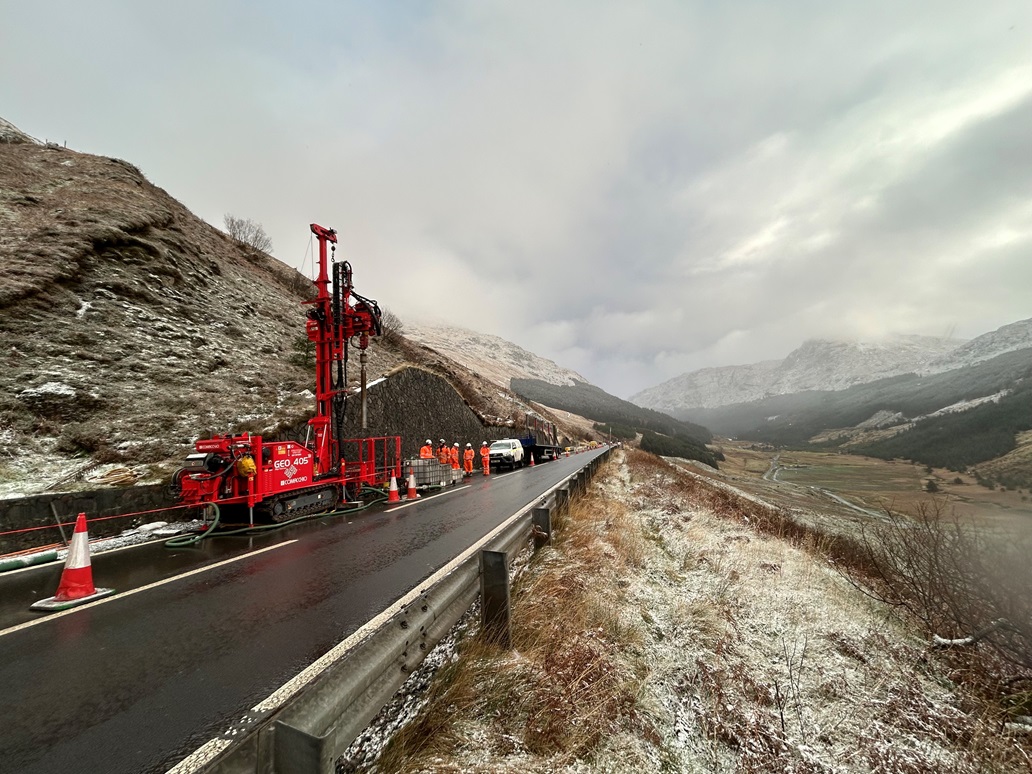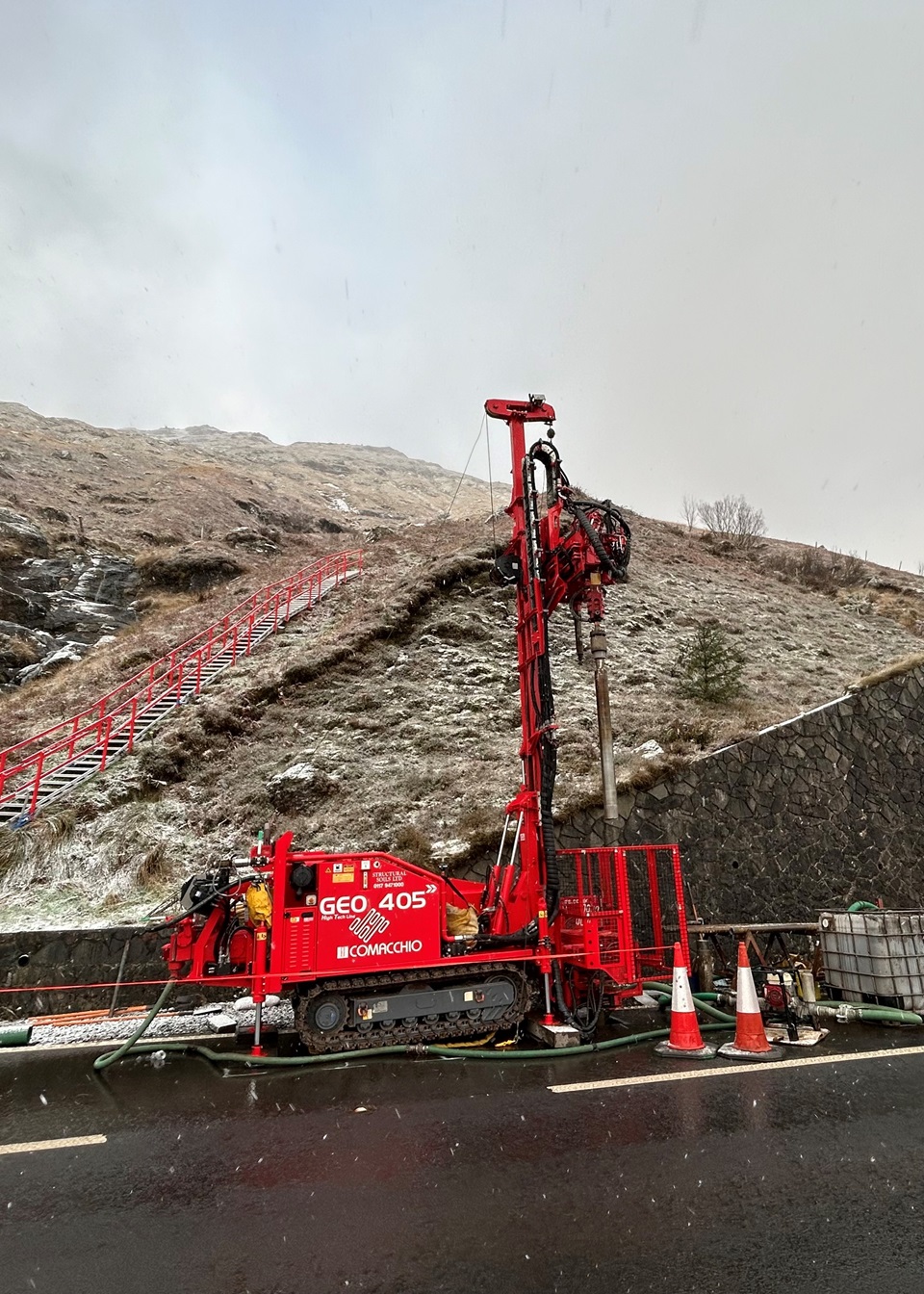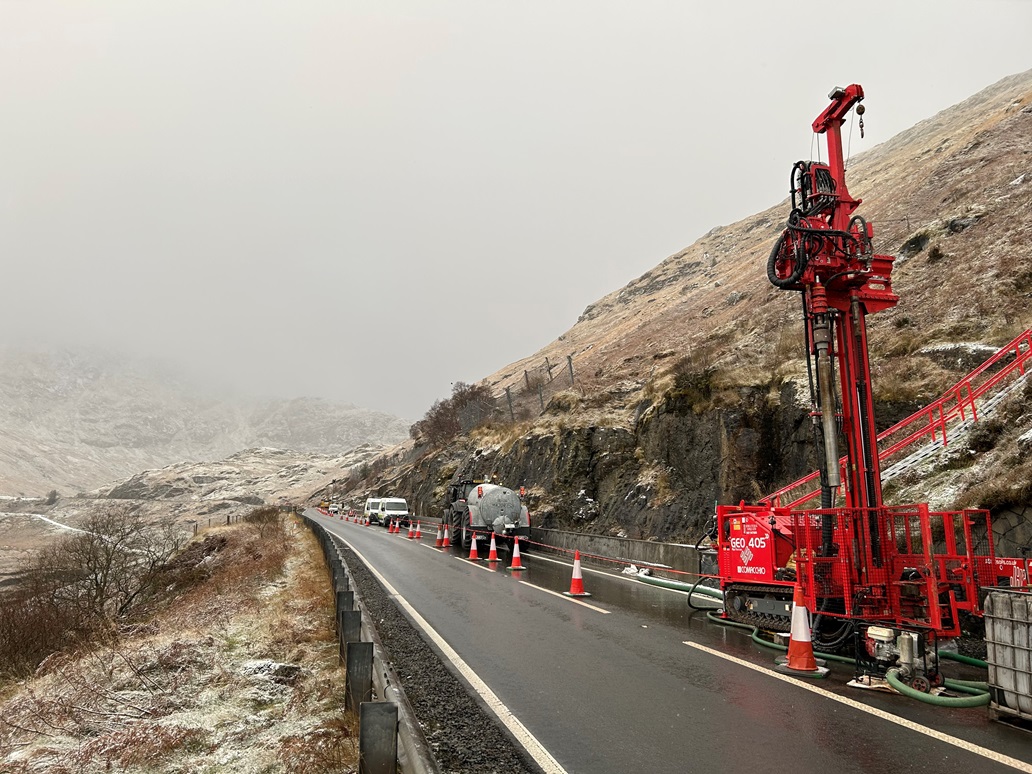Structural Soils brings specialist ground investigation expertise to A83 Rest And Be Thankful project

Sonic drilling and steep slope boreholes are just two of the specialist techniques in operation as part of Structural Soils’ £5.5 million detailed ground investigation contract for the Scottish Government’s A83 Rest And Be Thankful Long Term Solution project.
The company will be working with the national transport agency Transport Scotland on an innovative ground investigation on a stretch of road that suffers multiple closures annually due to rock falls and hillside failures. The road is a vital trunk road connecting the Central Belt of Scotland with the West Coast.
The project encompasses the logistical and technical challenges of maintaining vital public access and use of the road, while using the same road as the means of accessing the slopes above, below and through the carriageway to obtain the detailed and complex ground investigation data. This is required to inform the design for the proposed long-term solution to protect the road and its users.
The investigation requires multiple specialist ground investigation techniques working in challenging conditions on steep slopes and in cooperation with multiple stakeholders to obtain the detailed ground information required for the design of a 1.4km long debris flow shelter spanning the road that would keep falling rocks and other material off the carriageway.

Structural Soils managing director, Stephen Mackereth, said that, in what is likely to be Structural Soils’ most challenging project this year, the team would deploy a specialist project team upward of 50 members to execute the work. The techniques required include sonic drilling of boreholes through the carriageway, boreholes on steep and irregular slopes above and below the carriageway with no vehicular access and geophysics on sloped ground, amongst many challenging exploratory types.
The works will require use of multiple innovative approaches to exploratory holes in challenging locations. Collaborating with the client Transport Scotland, the designers and industry experts is the key to successfully and safely completing the ground investigation.
Stephen said: “Innovation and the ability to overcome a host of physical, practical and logistical factors will define this investigation. The physical constraints of this site will make access to many of the exploratory positions very difficult and unsuited to conventional investigation plant or access methods. Innovative use of a combination of access techniques, equipment and specialist trained personnel will be necessary to complete the scheduled works. Furthermore, the dynamic nature of the site will require adoption of a flexible approach with adaptable methods to fit conditions at that time and as they evolve.

“We will be drilling angled boreholes on slopes up to 60 degrees situated as far as 60m from the carriageway to depths of 35m, including rock coring. The intricate management of the resources on site will be the crux of the project, ensuring operations are conducted safely, efficiently and economically for the envisaged 16-week fieldwork period, subject to weather.”
The Structural Soils Scottish office will lead the project from its Glasgow office. This project lends itself to the specialist skills, experience and expertise of the Scotland team which has seen the office grow in reputation in recent times to offer solutions to such challenging ground investigation projects. They will be working closely with Transport Scotland, and their technical advisers (an AtkinsRéalis and WSP joint venture) to ensure the geotechnical information required from each location is efficiently delivered.
Additional RSK sister companies expected to support Structural Soils include JB Site Investigations, CAN, RSK Geosciences, Central Alliance, Envirolab, Drilling Supplies, ADAS and RSK Habitat.























